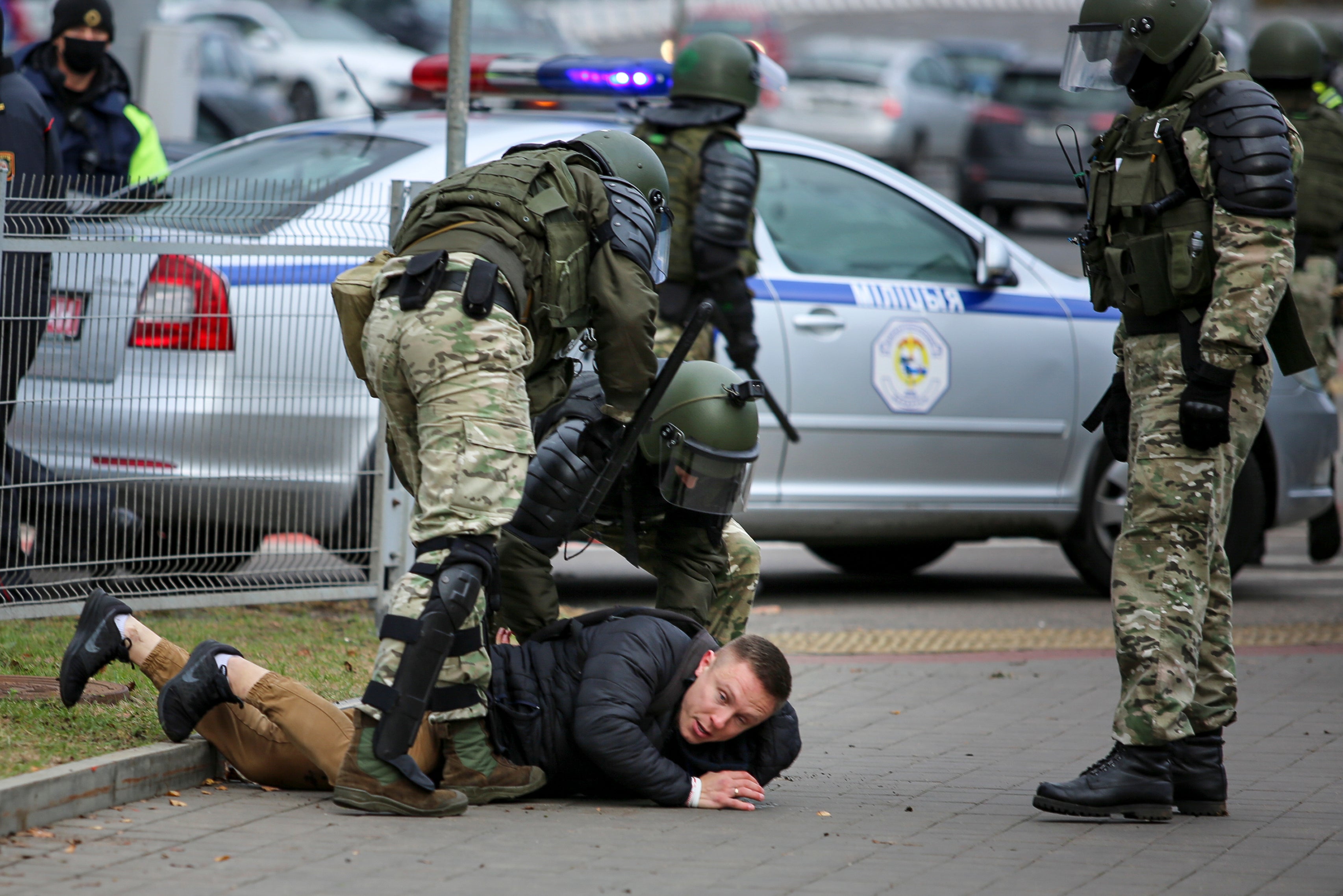Western nations decry Belarus crackdown at UN rights review
Western nations have decried a violent crackdown by authorities and arbitrary arrests in Belarus in a regular review of the former Soviet republic at the U.N.’s top human rights body

Western nations decried arbitrary arrests and other forms of repression in Belarus during a review of its record at the U.N.’s top human rights body on Monday, with the U.S. ambassador calling on authorities there to halt a “brutal crackdown.”
The comments on Belarus came during a process known as the Universal Periodic Review at the Human Rights Council, in which every country in the world has its rights record scrutinized every four or five years.
The review happened to fall a day after thousands of protesters in the Belarusian capital, Minsk, swarmed the streets to demand the resignation of longtime President Alexander Lukashenko — the 13th straight Sunday marked by demonstrations against his rule. Police used stun grenades and fired warning shots in the air to break up the crowds.
Lukashenko won his sixth term in an Aug. 9 election that is widely seen as rigged. Lukashenko’s crushing victory over his popular, inexperienced challenger, Sviatlana Tsikhanouskaya, has triggered the largest and the most sustained wave of mass protests of his 26 years in power.
Over 15,000 people have been detained since the election, and rights activists say over 100 of them are political prisoners.
French ambassador Francois Rivasseau said France remained “extremely concerned” by the rights situation in Belarus, calling on its government to release all people held arbitrarily.
Andrew Bremberg, the U.S. ambassador to U.N. institutions in Geneva called on Belarus to “cease its brutal crackdown against the Belarusian people” and denounced as “fraudulent” the Aug. 9 presidential elections.
Belarus ambassador Yury Ambrazevich said there was a “complex situation” in his country after the presidential elections, and said officials in Belarus had already discussed them. He appealed to participants on Monday not to turn the review on Belarus "only into a discussion on the post-election events.”
“This is the prerogative of the Belarussian people,” Ambrazevich said, according to an official Russian interpreter. “Belarus wishes, has the will, and has the necessary instruments itself, peacefully, to restore civility in society based on a balance of interests of our society as a whole.”
Bookmark popover
Removed from bookmarks